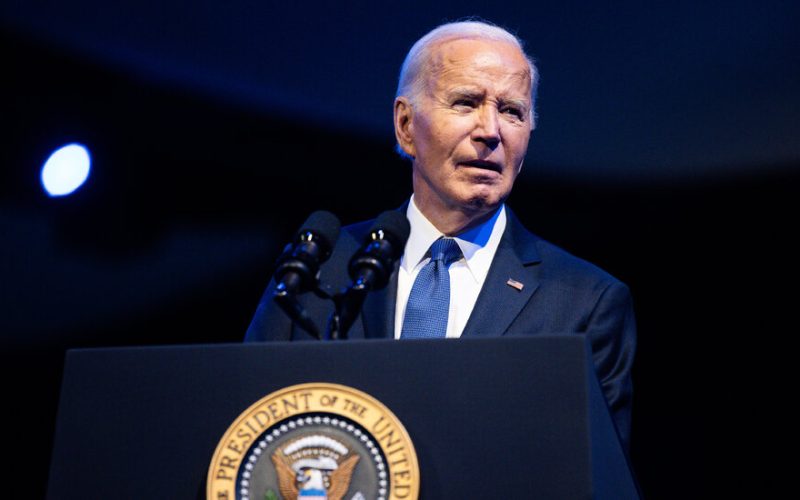President Biden announced on Friday that he would commute the sentences of nearly 2,500 inmates serving long prison terms for nonviolent drug offenses, the broadest commutation of individual sentences ever issued by a U.S. president.
The commutations are for offenders who received harsher sentences for drug crimes than they would under current practices, a move aimed at reversing longstanding criminal justice disparities, Mr. Biden said. Those disparities disproportionately affected Black people and fueled mass incarceration, many experts say.
“This action is an important step toward righting historic wrongs, correcting sentencing disparities and providing deserving individuals the opportunity to return to their families and communities after spending far too much time behind bars,” Mr. Biden said in a statement.
The commutations add to Mr. Biden’s sweeping use of his clemency powers as he prepares to leave office. In recent weeks, he has also commuted the sentences of nearly all prisoners on federal death row and set what was a single-day record of 1,500 commutations for those moved to home confinement during the pandemic.
Mr. Biden said he would consider additional pardons, which wipe out convictions, and commutations, which leave the guilty verdict intact but reduce some or all of the punishment, in the coming days. Among others, Mr. Biden has been considering pre-emptive pardons for a number of former elected officials and other people his successor, President-elect Donald J. Trump, may target for political retribution.
Mr. Biden said his latest commutations would help those who received sentences based on now-discredited distinctions between crack and powder cocaine, or faced inflated charges for drug crimes.
Mr. Biden said in his statement that he was following the lead of Congress, which over the past two decades has passed legislation to remedy decades-long disparities spurred by tough-on-crime laws, such as mandatory minimum sentences.
As a senator, Mr. Biden championed one such law, the 1994 crime bill. He has since expressed regret for his support of the legislation, and he committed during the 2020 campaign to addressing the long drug sentences that resulted.
“As Congress recognized through the Fair Sentencing Act and the First Step Act, it is time that we equalize these sentencing disparities,” Mr. Biden said.
The move comes after Mr. Biden faced mounting pressure from advocates and Democratic allies to use his clemency powers in his final days in office to release inmates who are vulnerable or suffered from systemic inequities.
Those calls grew louder last month after Mr. Biden issued a full and unconditional pardon of his son Hunter — after repeatedly insisting he would not do so — erasing years of legal troubles, including a federal conviction for illegally buying a gun and a guilty plea to tax evasion charges.
In recent months, Mr. Biden’s staff members have fielded requests from Democrats and criminal justice advocates who have called on him to specifically focus on those who have been imprisoned for decades for drug laws that have changed over time. He faced the most pressure to act to help those imprisoned for crimes associated with crack cocaine who would most likely have been released if it was powder cocaine.
In April, he commuted the sentences of five people convicted of drug-related crimes. That was in addition to commuting the sentences of nearly a dozen such prisoners in December 2023. Many of them were convicted of crimes involving powder cocaine.
Some of Mr. Biden’s closest allies, such as Representative James E. Clyburn, Democrat of South Carolina, have made the case to the White House that crack cocaine was more widespread among the Black community, while powder cocaine tended to be used by white people.
“I told them that these are some of the inequities that Black people have been caught up with,” Mr. Clyburn said in an interview last month.
Mr. Biden had already issued blanket pardons, including for thousands of people convicted of federal possession of marijuana and veterans convicted of engaging in gay sex. None of those people were in prison at the time.
Some Democrats lobbying the White House said that using clemency to address the sentencing disparities could be a cornerstone of the president’s criminal justice record.
“It’s not a matter of just what is the right thing,” Representative Ayanna Pressley of Massachusetts said in an interview last month. “It is also a matter of legacy.”








